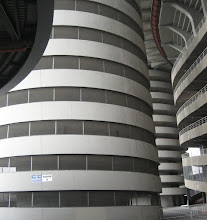UEFA's original Financial Fair Play (FFP) had long been criticized as anything but fair. Originally conceived as a way to help clubs be more fiscally responsible, the rules did not ever seem to be applied equally, punishments only seemed to apply to smaller clubs, and the guidelines seemed to make the rich clubs richer and the poor clubs even poorer. Milan certainly know firsthand how unfair FFP was. Then COVID-19 hit, bringing clubs to their knees economically. UEFA promised to go back to the drawing board and come back with a new plan that was an improvement on FFP. Only what they have reportedly come up with is so much less fair, they actually took the word fair out of the title.
 |
| This is payback for The Super League, isn't it, Ceferin? |
The new guidelines, set to be called "financial sustainability regulations," will give clubs three years to get their football-related spending, such as wages and transfer fees, down to 70% of their income or face new consequences. The penalties available to UEFA will be both fiscal and sporting, with fines, threat of expulsion, points deductions, and the ability to demote teams to lower level competitions for regulations breaches.
The first year, teams can spend up to 90% of their income if their balance sheets are healthy (Milan's are not, we are currently under investigation.) Additionally, for those clubs who have not breached FFP, there may be up to €10 million of flexibility above their ratio in the right circumstances (here is where UEFA give themselves room to be the same old UEFA again.) But they will all need to be compliant to the 70% ratio by year three. For the 40 or so teams that are already on Settlement Agreements under the current FFP, UEFA is working on proposals to allow them to continue participating in their current tournaments.
 |
| Not even pretending to be fair |
While UEFA claims they will be looking closer at sponsorship deals that are linked to the ownership groups of certain clubs, these new regulations still heavily favor clubs like the Premier League clubs, who have ridiculously massive television rights deals. The income they have from these and other lucrative marketing deals will allow them to continue to spend relentlessly and increase their chances of competing and winning the Champions League ahead of other leagues.
In Serie A, on the other hand, where a bunch of old men sit around and argue about whether to take the low television rights deal or the lower one, and municipalities prevent clubs from building new stadiums to protect species of frogs, clubs are severely handicapped when it comes to revenue. These new regulations will see them fall further behind in European competitions.
 |
| The word "fair" is old news |
The good news for Milan is that Maldini is in charge and has anticipated UEFA cutting our hands off financially. Since taking over as technical director less than 3 years ago, Maldini and Massara have cut the wage bill by 43% to under €82 million per year. During that time, although also spending a lot, Gazidis has also finally increased income. Although Deloitte initially published our income incorrectly in the Deloitte Football Money League and listed Milan as the 30th highest earning football club in the world at €148.5 million, Milan were able to get a retraction printed, as Milan actually show income of €216.3 million per year, ranking us 19th in the world.
If these figures are accurate, we can still afford some semblance of a summer mercato. Perhaps now you can see the wisdom in them not spending in January? Or why we are linked once again to so many free or low-cost transfers? Deals that are not yet in place while Maldini and Massara haggle wages down to a bare minimum?
 |
| Your agent is the one who benefits most from this deal. Adios. |
The new regulations make little sense at a time when for most clubs, income is down due to COVID-19, and yet player costs are as high as ever and growing. Additionally, Milan are not the only club losing players on free transfers. So many clubs are losing tons of money as players run down their contracts and walk away from clubs without conscience, while their agents revel in gigantic agent fees (looking at you, Kessié.) Perhaps UEFA would have more credibility if they had tackled their promise to regulate agent fees first, then asked clubs to be fiscally sustainable?
For now, it seems like UEFA are more corrupt than ever. It almost appears as though the big clubs bribed them to write the new sustainability regulations in their favor, with no salary cap, and with no threat of stopping them from collecting all of the most expensive players and ultimately winning all of the trophies. But hey, at least UEFA were honest enough to take the word "fair" out of the title this time.
This post inspired by the music of Walt Disney's "Robin Hood" soundtrack
 Reviewed by Elaine
on
2:30 AM
Rating:
Reviewed by Elaine
on
2:30 AM
Rating:
